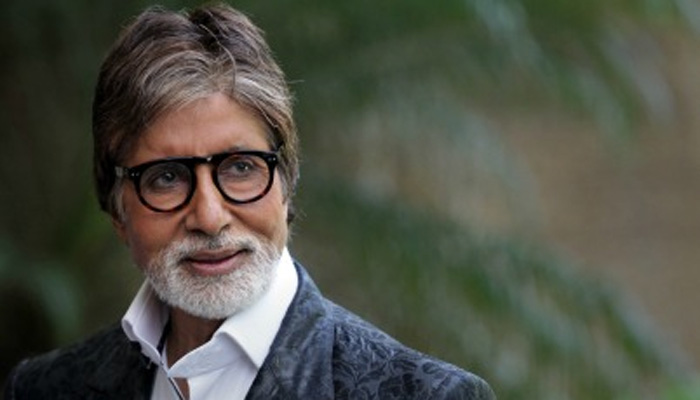
Donald Trump followed the script in his big speech to the Republican National Convention. Less than 12 hours later, he was free-form again, Trump being Trump, resurrecting a conspiracy theory linking the father of his chief rival from the primaries to John F. Kennedy’s assassination.
Trump’s plunge into a lengthy litigation of past spats with Ted Cruz — even bringing up his retweet of an unflattering photo of Cruz’s wife, Heidi — did nothing to assuage Republican fears about their standard bearer after a national convention complicated by unforced errors.
The episode raised questions, too, about how he might govern inside the White House, having so far led a scattershot campaign marked by a short temper and a seemingly improvised approach to policymaking.
Presidential candidates typically come out of their conventions looking ahead to the general election and intent on expanding their appeal beyond the partisans who showed up. Trump took a bizarre look backward at what was billed as a post-convention thank you reception Friday for supporters and staff at his Cleveland hotel.
Reviewing one of the ugliest chapters of the nomination contest, Trump mentioned Cruz’s father, saying “All I did was point out the fact that on the cover of the National Enquirer there was a picture of him and crazy Lee Harvey Oswald having breakfast.” There is no evidence linking Rafael Cruz to JFK’s murder.
Republicans lustily cheered their nominee on the convention’s closing night but not all can figure out what he’d be like in the Oval Office.
“It remains a mystery how exactly he will govern other than through platitudes and statements like, ‘The violence will end,'” said Ari Fleischer, White House press secretary under President George W. Bush.
Former House Speaker Newt Gingrich, a Trump supporter who was on the short list for running mate, said: “Trump tends to take, very personally, attacks and he tends to counterattack very aggressively. That’s a fact. And it doesn’t seem to be changeable.”
He went on: “He would govern with great intensity. He would push the margins on many things.” Gingrich said Trump would make mistakes, “Yes. But he would do something.”
Earlier in the week, Senate Republican leader Mitch McConnell, who supported Trump at the convention, told The New York Times that Trump made a “rookie mistake” when he questioned a core commitment to NATO allies.
Trump’s NATO comments sent shockwaves across Europe and the diplomatic world, only a taste of what the response would be if Trump had been musing from the Oval Office.
Convention misfires began before the gathering itself.
Former NFL quarterback Tim Tebow was billed on the convention speaking program released by the campaign last week, but described his appearance as a rumor and didn’t come.
On the convention’s opening night, most delegates left after Melania Trump’s address, and Iowa Sen. Joni Ernst, a rising Republican star, spoke to an overwhelmingly empty convention hall.
Mrs. Trump’s speech was well-received — for a few hours. But striking similarities were uncovered between portions of her speech and the one delivered by Michelle Obama at the 2008 Democratic convention. The fallout dragged on as campaign chairman Paul Manafort repeatedly insisted there was no plagiarism. Finally on Wednesday, the campaign released a statement blaming a writer for unknowingly lifting passages from the speech.
Then came the Cruz missile. Trump’s team allowed him to take the prime-time stage, despite knowing he would not explicitly endorse Trump. The Texas senator’s speech sparked a torrent of boos. It was another setback for a convention that aimed to unify the party.
Trump repeatedly stepped on his own messaging, for example phoning in to Fox News just as the mother of an American killed during the attack in Benghazi, Libya, was speaking powerfully onstage. His lengthy interview with The New York Times on foreign policy robbed attention from running mate Mike Pence hours before his keynote address.
Manafort rejected the idea that the campaign’s message had been muddled.
“The speeches have all been well-received,” he said Friday. “And that’s the bottom line: People are hearing the message. He predicted a bump in the polls next week.
Fleischer said that by conventional standards, he’d grade the convention a C-plus or B-minus, but this isn’t a conventional campaign.
The political class “will judge those things and call it poorly done, and for good reason,” he said. “But most of the voters just focus on what Trump says and what he represents.”
Henry Barbour, a Republican national committeeman from Mississippi, was willing to forgive the Trump’s campaign mistakes.
“Every convention, every campaign has mistakes, and that’s OK,” he said. “It’s July. There is ample time for folks who need time to understand why Donald Trump is a better pick than Hillary Clinton. He’s not George Washington, not Abraham Lincoln, but he’s a heck of a lot better than Hillary Clinton.”
From Agencies, Feature image courtesy AP
























